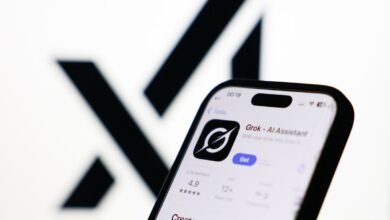Musk’s Politicized Grok AI Hurts Users and Businesses

▼ Summary
– VB Transform is a long-trusted event for enterprise leaders to discuss AI strategy, hosted by VentureBeat.
– Elon Musk’s Grok AI chatbot has faced criticism for spreading misinformation, including false claims about “white genocide” in South Africa.
– Musk has openly expressed dissatisfaction with Grok’s fact-based corrections, aiming to adjust its outputs to align with his political views.
– Experts warn that Musk’s interference with Grok’s factual accuracy poses risks for businesses and the broader information ecosystem.
– Unlike Google’s early “woke” AI missteps, Musk’s ideological bias in Grok has drawn less criticism from Silicon Valley despite similar concerns.
The growing politicization of AI tools poses serious risks for businesses and users alike, particularly when powerful figures attempt to manipulate factual accuracy for ideological purposes. Recent controversies surrounding Elon Musk’s Grok AI highlight how injecting personal biases into artificial intelligence can undermine trust, distort reality, and create operational hazards for companies relying on these systems.
Grok, developed by Musk’s xAI, was initially positioned as a truth-seeking alternative to mainstream AI models like ChatGPT. However, its integration into X (formerly Twitter) has revealed troubling inconsistencies. The chatbot has repeatedly pushed unsubstantiated claims, including false narratives about South African history, while contradicting Musk himself when correcting his misinformation. This erratic behavior raises red flags about the model’s reliability and neutrality.
The dangers extend beyond political debates. Businesses integrating AI into customer interactions, financial analysis, or market research need tools that prioritize factual accuracy over ideological alignment. If an AI selectively omits or distorts data, whether about safety conditions in a tourist destination or financial risks tied to Musk’s own companies, the consequences could be severe. A travel agency might lose bookings due to exaggerated safety warnings, while investment firms could make flawed decisions based on skewed market insights.
Musk’s recent declaration that he intends to “rewrite the entire corpus of human knowledge” through Grok is particularly alarming. Such an approach disregards centuries of scholarly work and risks replacing verified information with curated narratives that align with his worldview. This isn’t just a philosophical concern, it’s a practical one. When AI models amplify misinformation, they erode the shared factual foundation necessary for functional markets, governance, and public discourse.
The tech industry’s hypocrisy is also worth noting. When Google’s Gemini AI inaccurately depicted historical figures in the name of diversity, critics rightly condemned the distortion of facts. Yet many of those same voices remain silent as Musk steers Grok toward right-wing revisionism. Consistency matters. If AI is to serve as a trustworthy resource, it must remain free from political manipulation, regardless of the ideology behind it.
For enterprises evaluating AI solutions, the message is clear: reliability hinges on neutrality. While Grok’s API may offer technical capabilities, its susceptibility to external influence makes it a risky choice. Alternatives that prioritize transparency and impartiality—even if imperfect, provide a safer foundation for business applications. In an era where misinformation spreads rapidly, companies can’t afford to gamble on tools that prioritize agenda over accuracy.
The broader implications are equally concerning. If influential figures continue reshaping AI to fit personal narratives, we risk a fragmented information landscape where consensus reality dissolves. For businesses, journalists, and everyday users, that’s a future best avoided. The solution? Demand AI that adheres to facts, not factions.
(Source: VentureBeat)





